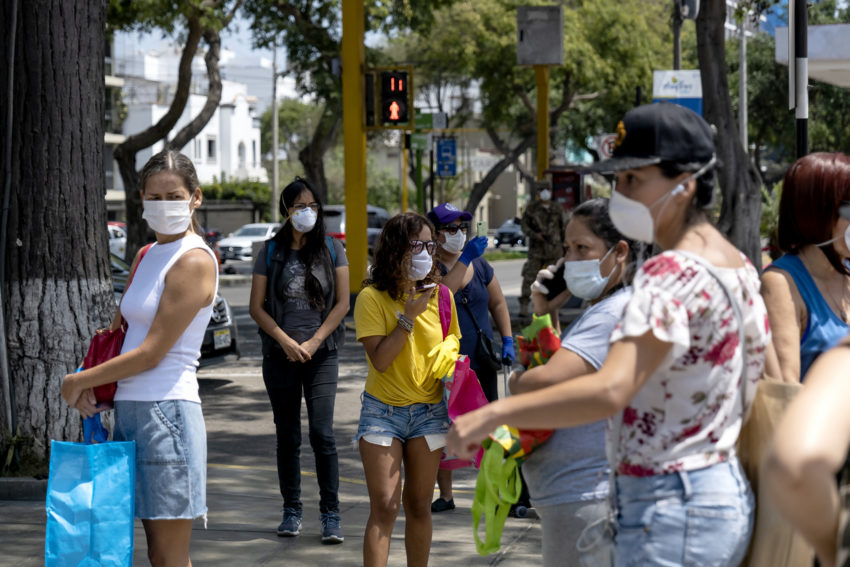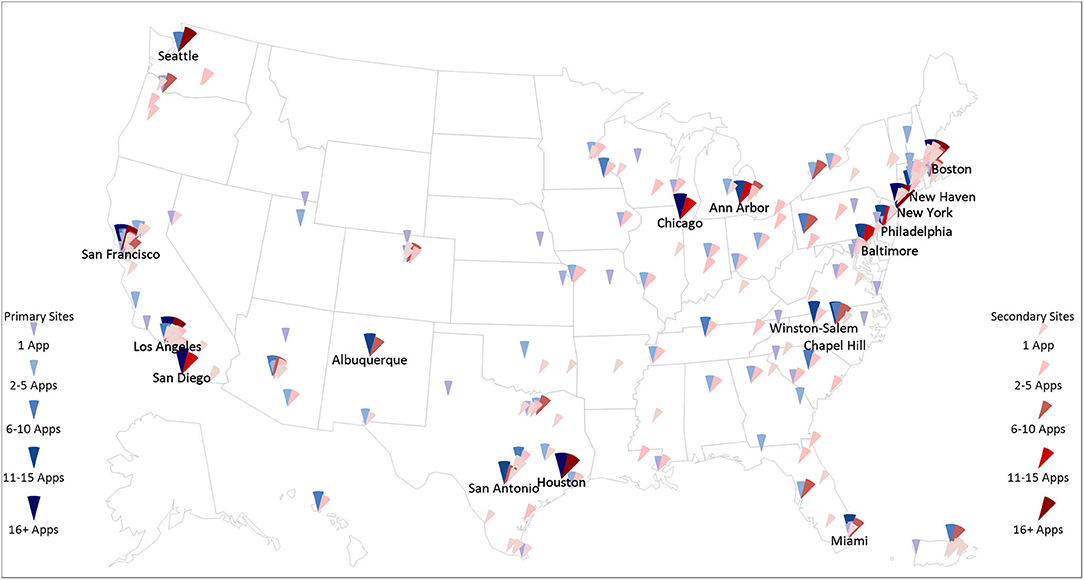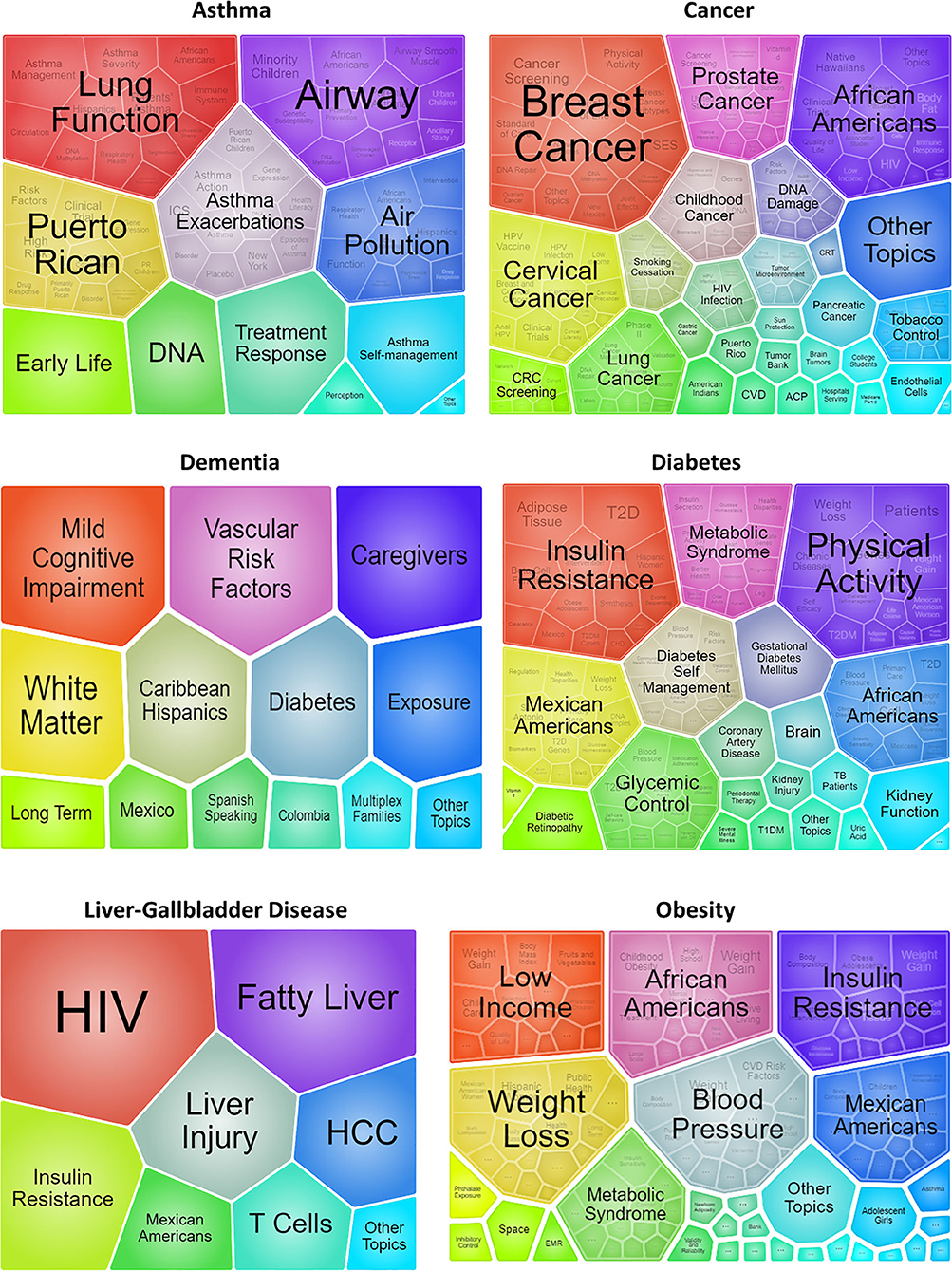
Share On Social!
We know that Latinos, by-in-large, face a host of health disparities.
But we also know there is a historic lack of research about these inequities and how to address them.
This is why the National Institute on Minority Health and Health Disparities’ recent “Funding of Latino Health-Related Research,” is so important. The study—published in Frontiers of Public Health—looked at the impact of interventions or policies premeditated to reduce health disparities.
This information could advance research in Latino health and contribute to the achievement of better health outcomes in this diverse population, according to Dr. Larissa Avilés-Santa, who led the study.
“Latinos are expected to constitute 25% of the U.S. population by 2060,” the researchers write. “Differences in the prevalence of health risk factors, chronic diseases, and access to and utilization of health-care services between Latinos and other populations in the U.S. have been documented.”
What Does the Study Say?
Researchers “aimed to describe and analyze the landscape of Research Program Grants (RPGs) funded by the National Institutes of Health (NIH) between 2008 and 2015 involving Latino health research in six health condition areas and to identify opportunities for continued research in these areas.”
Those health condition areas include asthma, cancer, dementia, diabetes, liver/gallbladder disease, and obesity.
Key findings of the study are:
- The most common type of research studied, “over 70% of the studies involved Obesity or Cancer as their main health condition of interest, 42% proposed a powered sample size or focused on Hispanics/Latinos.”

- Most of the performance sites were located in U.S. areas with the highest concentration of Hispanic/Latino population.
- Only 12% of the principal investigators in the RPGs included in our analysis self-reported Hispanic/Latino ethnicity
- The most protuberant clusters of research subtopics were identified within each health condition area, and performance sites were mapped at the city level.
Hence, the study suggested that advanced “multi-level interventions implementation and dissemination studies, the role of health information technology on health outcomes, and the intersectionality.”
Specific, sociocultural, geographic, and other factors on health outcomes could possibly advance research in Latino health and underwrite to the achievement of better health outcomes in this diverse population.
Why this Knowledge is Important?
Health gaps are quite large and Latinos struggle with:
- Healthy food access
- Healthy school environments
- Social support
- Safe places for physical activity
- Housing and transit
- Mental health issues
- Childhood trauma
There exist clear differences in prevalence of some chronic diseases or their risk factors among different heritage groups in the contemporary U.S. Latino population, the underlying mechanisms mediating such differences are yet to be determined.

The current study aims to understand the reasons for this health paradox, which “are not fully understood, and further study of the Hispanic/Latino populations may lead to important scientific discoveries.”
Although many initiatives by NIH has advanced the understanding of the health of Latinos, but the analysis posits both the need and the opportunities for continued research in Latino health.
The findings also suggests that future research could focus on understudied approaches in “Latino health, including, but not limited to, deeper understanding of effectiveness of currently recommended therapies and potential differences among heritage groups.”
The impact of interventions or policies must be designed to reduce health and health-care disparities.
Latino Health Inequity During COVID-19 and What Can We Do to Improve U.S. Latinos’ Health?
Most recently, the novel coronavirus COVID-19 is worsening these very health inequities which includes higher case and death rates for Latinos.
“Persons with uncontrolled diabetes could be more susceptible to getting infections – like skin infections, sinusitis, pneumonia and others,” Avilés-Santa told WBEZ Public Radio. “Also, some persons with diabetes have other health conditions for which they need to take medications and see the doctor regularly.”
We need to a focus on solutions to reduce health inequity among Latinos in following area to reduce the impact of COVID-19 pandemic:
- Increase income and reduce poverty
- Improve working conditions
- Ensure Health Equity Is a Component of the Recovery
- Address Systemic Racism and Discrimination
“We continue to need both immediate focus to ease the coronavirus pandemic and its impact on Latinos and people of color,” said Dr. Amelie G. Ramirez, director of Salud America! at UT Health San Antonio. “We also need long-term strides to address underlying inequities that are aggravated during this time.”
The big question arise is what we can do as an individual and community do to reduce the health inequity, specially during this worst pandemic.
Start with a customized Salud America! Health Equity Report Card to see how your area heaps up in housing, transit, poverty, health care, and other health equity issues related to the rest of your state and nation.
Also have you subscribed to our Salud Talks Latino health equity podcast? Be sure to check out the latest episodes here.
GET YOUR HEALTH EQUITY REPORT CARD!
What Can You Do?
Latinos, like everyone else, need to be especially health-cautious during the current pandemic.
That’s why Salud America! at UT Health San Antonio launched the “Juntos, We Can Stop COVID-19“ digital communication campaign to help Latino families and workers take action to slow the spread of coronavirus.
The #JuntosStopCovid campaign features culturally relevant fact sheets, infographics, and video role model stories to encourage Latinos to change their public health behaviors.
Share the campaign with your friends, family, and colleagues!
By The Numbers
142
Percent
Expected rise in Latino cancer cases in coming years



